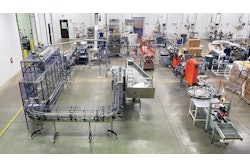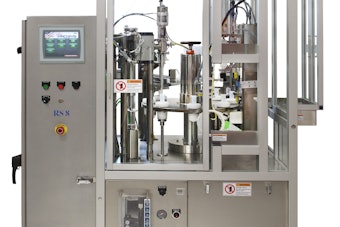Quick hits:
- Stop Foodborne Illness aims to get certain strains of Salmonella declared pathogens
- Stop’s CEO asserts that training and education are key to reducing the incidence of foodborne illness
- Stop will be releasing a food safety toolkit for small and medium enterprises with limited funds
- Tyson Foods’ new 400,000-sq-ft facility will feature the latest robotics and automated technologies to maximize production efficiency
- Approximately 98% of all the Slim Jims made in the U.S. come from Conagra Brands’ Troy, Ohio facility, which is now undergoing a fourth expansion
- Kerry invested almost $90 million in the Middle East region over the past four years
- Step Up Against Foodborne Illness
- Efficient CIP Technologies Improve Food Safety, Costs
- Take Five Video: Meat Processing Innovations Return With In-Person IPPE
- Operational Success: Productivity Under Pressure
 | Read the transcript below: |
Joyce Fassl: I’m Joyce Fassl, senior executive editor of ProFood World, with an update on new food plant production projects in the US and abroad.
Tyson Foods broke ground on its new $355 million bacon production facility in Bowling Green, Kentucky. Projected to be operational late next year, the 400,000-sq-ft facility will feature the latest robotics and automated technologies to maximize production efficiency and team member safety. It will employ 450 people and help meet growing demand for the company’s Jimmy Dean and Wright brands.
The project is part of Tyson’s commitment to meet increasing retail and foodservice demand for bacon products and its strategy for accelerating long-term growth aligned to consumer trends.
Conagra Brands is planning a fourth, $60 million investment, to expand its operation in Troy, Ohio. The 15,000-sq ft building addition will meet the growing demand for the company’s snacks, primarily the Slim Jim products line. Conagra Brands produces more than a billion Slim Jims each year. Approximately 98% of all the Slim Jims made in the U.S. come from the Troy facility.
Construction at the site is expected to start in August and continue through February of next year. Equipment installation and startup of operations are projected to take place from January through May 2023. The expansion will include the use of robotic technology, and approximately 100 new jobs will be created as a result of the expansion project.
Kerry has opened a 21,500-sq-ft state-of-the-art facility at its Jeddah operation in Saudi Arabia. The company has invested almost $90 million in the region over the past four years. The facility, which is Kerry’s largest in the Middle East, North Africa, and Turkey region, will produce sustainable food ingredients that will be distributed across the Middle East.
Stay tuned for a special report from ProFood World’s Melissa Griffen about stopping contamination in the food supply chain.
Melissa Griffen: Hi I’m Melissa Griffen, Contributing Editor at ProFood World, Magazine. Food safety is a significant discussion, resulting in food safety regulations impacting the entire supply chain. Food safety is also affected by supply chain. Occurrences such as contaminated water used in the field, improperly cleaned machines, and improper handling of food during distribution and inside consumer homes are only a few instances that lead to illness and possible death.
According to the Centers for Disease, Control and Prevention, approximately 48 million—or one in six—Americans experience a foodborne illness annually, with 128,000 of them needing hospitalization and 3,000 resulting in death.
The FDA and other organizations provide educational services to minimalize the instances and impacts of foodborne illness. One such organization, Stop Foodborne Illness, a national public health nonprofit, advocates for effective food safety policies and regulations for food manufacturing, food handling, and food processing. It also emphasizes education by sharing real stories of sever foodborne illness.
Currently, Stop is collaborating with the USDA’s Food Safety Inspection Service to battle a significant cause of illness: Salmonella. The nonprofit’s goal is to get certain strains of Salmonella in poultry declared pathogens, following the same process it used to combat the 1993 E.coli O157:H7 outbreak associated with ground beef, which resulted in the deaths of four children and illness for hundreds more.
Mitzi Baum, Stop’s chief executive officer, says that “training and education are key to reducing the incidence of foodborne illness and specifically outbreaks due to poor handling of food.” She emphasizes that training and education build a strong food safety culture and efforts must start at the top. Leadership most portray the importance of the culture and empower the workers to embrace the company’s food safety vision.
For more on building your food safety culture and Stop’s toolkit on food safety culture for small and medium enterprises (to be released this Spring), visit this URL. Thanks and see you next time on Take Five with ProFood World.






















